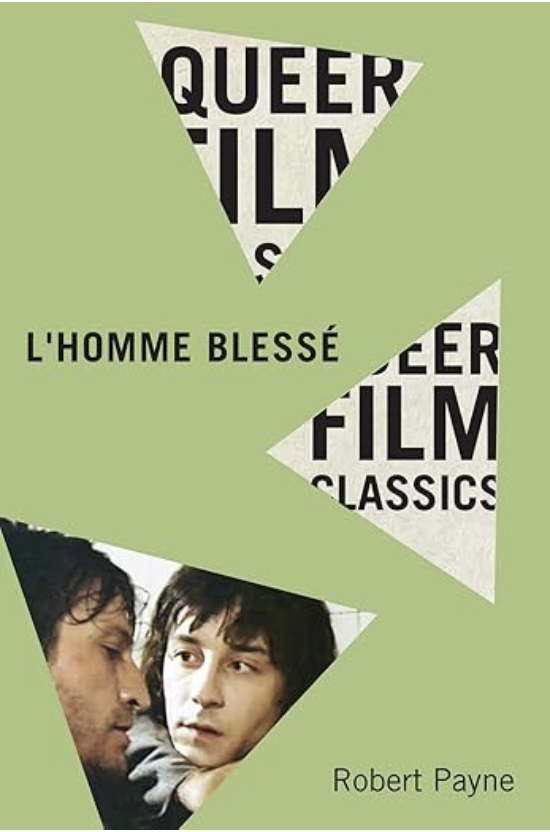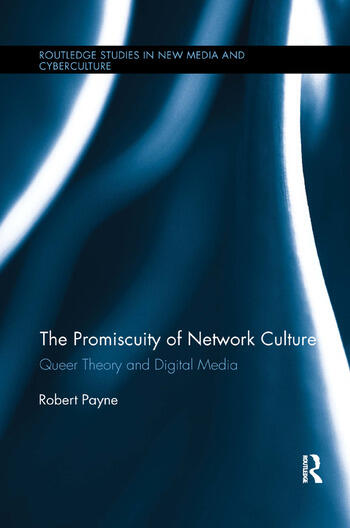Robert Payne
Professor, Department Chair – Communication, Media and Culture
- Department: Communication, Media and Culture
- Graduate Program(s): Global Communications
See Courses >>

Professor Payne joined The American University of Paris in 2008 after teaching for several years at universities in his home country, Australia. In his research, he is primarily interested in gender and sexuality in media and popular culture, and how queer theory can generate new approaches for media studies scholarship. He has published widely in these fields, focusing on such topics as the construction of masculinity on gay dating websites and Australian TV, the circulation of panic in the mediation of gender and sexuality, the inherent queerness of social media discourses, and the queer potential of deteriorated media experiences.
Payne has published two monographs. The first, The Promiscuity of Network Culture: Queer Theory and Digital Media (Routledge 2015) takes as a point of departure the resignification of "viral" circulation for a digital media context. The book examines the multiple intimacies that characterize network culture, including the everyday practices of "sharing" on social media. Interrogating a wide range of examples, from Facebook to viral celebrity to the Abu Ghraib photos, the book uncovers the queer and entrepreneurial logic governing what circulates in digital networks and how we talk about them.
His second monograph, L'Homme blessé, published in the Queer Film Classics series by McGill-Queen's University Press (2022), is a book-length study of the pioneering 1983 French film by director Patrice Chéreau, paying particular attention to the film's visual grammar of queer desire, the social and political circumstances of the film's production, and its reception in various international contexts.
Payne's current research explores the materialities of everyday media, in particular the spaces, infrastructures, objects, and affects that characterise and make possible our encounters with media.
Education/Degrees
- PhD, University of Sydney, Australia
- BA (Hons I), University of Sydney, Australia
Publications
Books
 L'Homme blessé (Queer Film Classics). McGill-Queen's University Press, 2022.
L'Homme blessé (Queer Film Classics). McGill-Queen's University Press, 2022.
 The Promiscuity of Network Culture: Queer Theory and Digital Media. Routledge, 2015.
The Promiscuity of Network Culture: Queer Theory and Digital Media. Routledge, 2015.
Journal articles and book chapters
"Mining masculinities in song: intimate geographies of blue-collar resistance," Gender, Place & Culture, 2025. Co-authored with Vincent Bos. DOI: 10.1080/0966369X.2025.2474591
"Queer by numbers, or what is happening to popular discourses of LGBTQ+ media representation?" Queer Studies in Media and Popular Culture, vol 9, no. 2, 2024, pp. 183-199. https://doi.org/10.1386/qsmpc_00128_1
"Like Living in a Different Time Zone: SBS's Queer Orientations." Television Studies in Queer Times, edited by F. Hollis Griffin, Routledge, 2023, pp. 51-64.
“Productivity and Promiscuity: Paying Undivided Attention” in Communication in the Era of Attention Scarcity. Ed. Waddick Doyle and Claudia Roda. Palgrave, 2019, 129-139.
"Lossy Media: Queer Encounters with Infrastructure", Open Cultural Studies 2 (2018). Available online at: https://www.degruyter.com/view/j/culture.2018.2.issue-1/culture-2018-0048/culture-2018-0048.xml?format=INT
"Je suis Charlie": Viral Circulation and the Ambivalence of Affective Citizenship, International Journal of Cultural Studies (2016): doi:10.1177/1367877916675193
“Frictionless sharing and digital promiscuity”, Communication and Critical/Cultural Studies (2014). DOI: 10.1080/14791420.2013.873942
“Virality 2.0: Networked promiscuity and the sharing subject”, Cultural Studies 27.4 (2013): 540-560.
"But what about the dinosaurs?: A Response to Damien Riggs", Contemporary Issues in Early Childhood 14.1 (2013): 94-98.
"Introduction: Citizenship and Queer Critique", Sexualities 15.3-4 (2012): 251-256 (co-authored with Cristyn Davies).
"Grid Failure: Metaphors of Subcultural Time and Space" in Queer and Subjugated Knowledges: Generating Subversive Imaginaries. Ed. Kerry Robinson and Cristyn Davies. Bentham e-books, 2012.
“Dancing with the ordinary: masculine celebrity performance on Australian TV”, Continuum 23.3 (2009): 295-306.
“Performing the Ethics of Conversation: a review of Judith Butler in Conversation: Analyzing the Texts and Talk of Everyday Life”, GLQ 15.1 (2009): 177-179.
“Virtual panic: children online and the transmission of harm” in Moral Panics over Contemporary Children and Youth. Ed. Charles Krinsky. Aldershot: Ashgate, 2008, 31-46.
“Skylarking: homosexual panic and the death of Private Kovco”, Cultural Studies Review 14.2 (2008): 34-48.
“Str8acting”, Social Semiotics 17.4 (2007): 525-538.
"Grid: On Being-as-Transmission and Normativity." M/C Journal 9.1 (2006). http://journal.media-culture.org.au/0603/06-payne.php
“Digital memories, analogues of affect”, SCAN: Journal of media arts culture 1.3 (2004). http://scan.net.au/scan/journal/display.php?journal_id=42
“Virtually: the refreshment of interface value”, Postmodern Culture 14.3 (2004). http://www3.iath.virginia.edu/pmc
“Confessing the Violent: Projected Deviance in American Psycho and Talk Show TV”, Anatomies of Violence: an Interdisciplinary Investigation. Ed. R. Walker, et al. Sydney: Research Institute for Humanities and Social Sciences, University of Sydney, 2000, 169-79.
Edited journal issues
“Citizenship and queer critique”, special issue of Sexualities 15.3-4 (2012), co-edited with Cristyn Davies.
“Panic”, special issue of Cultural Studies Review 14.2 (2008), co- edited with Cristyn Davies
Research Areas
* Digital media
* Social media and network culture
* Gender studies and queer theory
* Gender and sexuality in media and popular culture
*Affect theory
*Materiality and media
